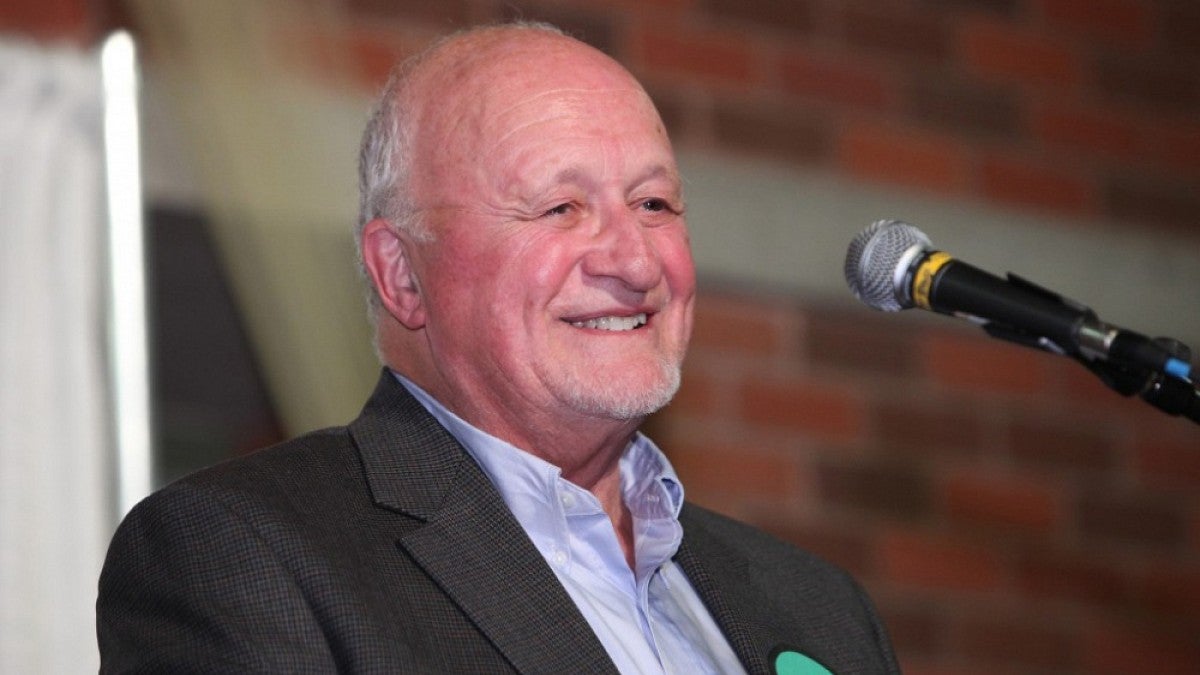UO biophysical chemist Peter von Hippel has been recognized as the 2021 recipient of the Ignacio Tinoco Award from the Biophysical Society for his exceptional contributions to the field of biophysics.
An emeritus professor in the Department of Chemistry and Biochemistry and a member of the Institute of Molecular Biology, von Hippel has spent decades developing approaches to studying the molecular basis of gene expression and played a leading role in creating the major discipline of modern molecular biophysics.
“The award really honors all the great people who have worked in my lab over the last 50 years and in many cases have subsequently gone on to having successful scientific careers of their own,” von Hippel said.
Named after the late Ignacio “Nacho” Tinoco, a pioneering biophysicist, educator and mentor at the University of California, Berkeley, the Tinoco Award recognizes investigators in the field of biophysics who have made major scientific contributions, while also maintaining collaborative, inclusive and engaging environments.
Von Hippel has mentored, educated and inspired many students and colleagues over the years, say those who know him, such as Andy Marcus, a professor in the Department of Chemistry and Biochemistry. Marcus has worked with von Hippel in recent years to develop new approaches to studying the mechanisms and dynamics of the central biological processes of DNA transcription and replication.
“It’s really not possible to overstate the significance of Pete von Hippel’s scientific impact over the course of his 50-plus-year career,” Marcus said. “He is an accomplished leader in every sense of the word. In spite of his huge scientific stature, Pete is remarkably modest. To interact with him scientifically is an enriching experience because he naturally works to elevate everyone around him.”
After finishing his doctorate at Massachusetts Institute of Technology in 1955, von Hippel became a researcher, as well as a commissioned officer in the U.S. Navy, at the Naval Medical Research Institute in Bethesda, Maryland. In 1959 he became an assistant, and then an associate, professor in the Department of Biochemistry at Dartmouth Medical School in Hanover, New Hampshire.
He moved to Oregon in 1967 to continue his National Institutes of Health- and National Science Foundation–supported research and teaching in the fields of biophysical chemistry and molecular biology. He was honored by election to the National Academy of Sciences in 1978, to the American Academy of Arts and Sciences in 1979 and to the American Philosophical Society in 2004. He was also appointed a Career American Cancer Society Research Professor in 1989.
Von Hippel uses physical biochemical approaches to study the molecular basis of gene expression. As Marcus describes it, von Hippel is largely responsible for writing the modern "rule book” to understand the physical-chemical basis of how genetic macromolecules, like DNA and RNA, carry out their biological functions and is recognized by biochemists and biophysicists around the world for his pioneering work.
Bruce Blonigen, dean of the College of Arts and Sciences, pointed to the significant impact of von Hippel’s hundreds of published research papers and the numerous high-level research grants he has received over the years.
“Even more extraordinary is the significance of the discoveries he has made and how it has advanced our knowledge of the molecular basis of gene expression,” Blonigen said. “I’m thrilled that his career achievements have been recognized by this award.”


